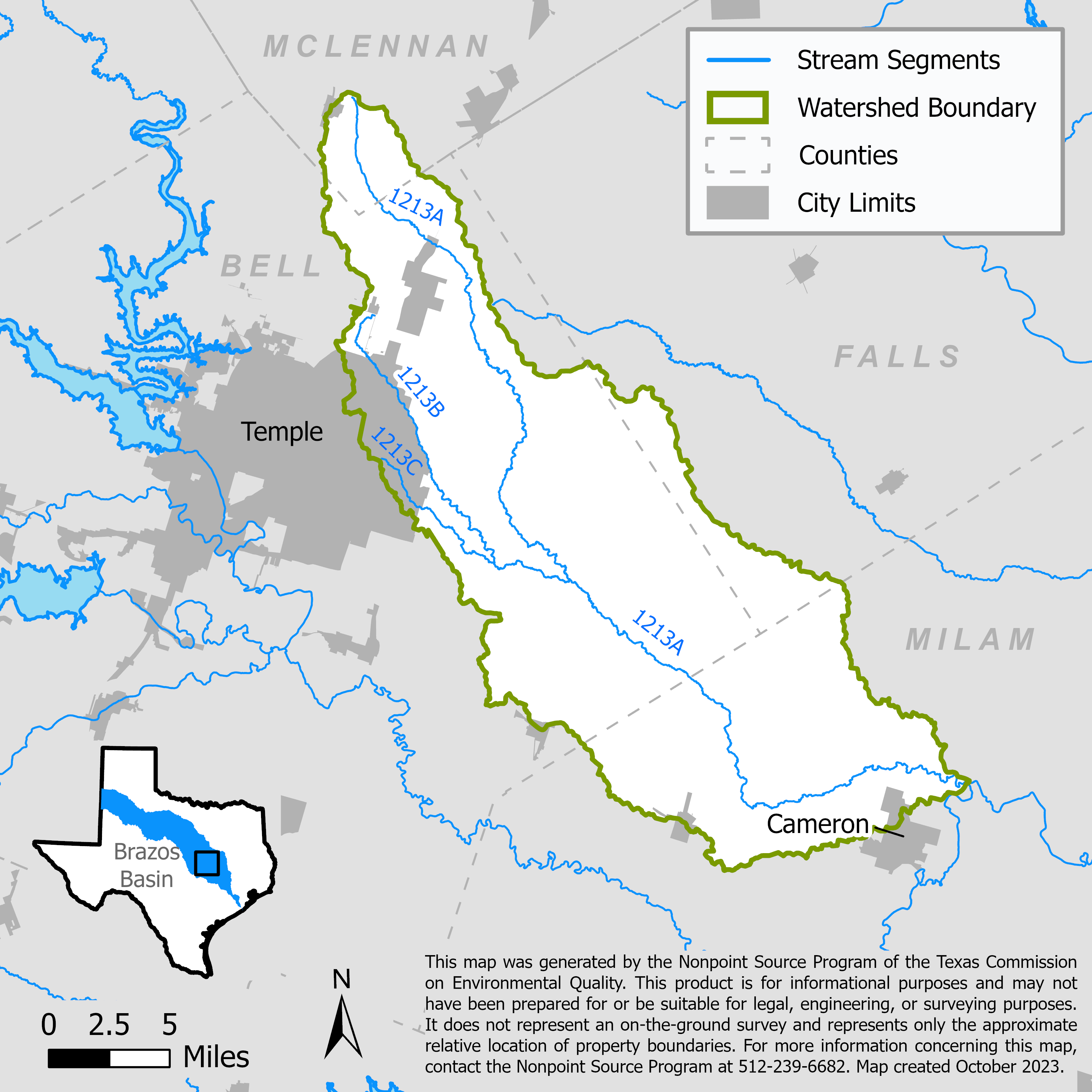Big Elm Creek: Implementing a Watershed Protection Plan
The Texas Water Resources Institute is implementing the Big Elm Creek Watershed Protection Plan by hosting stakeholder meetings, applying for financial and technical assistance, and hosting education events.

On this page:
Project Area
River Basin: Brazos
Water Body: Big Elm Creek (1213A)
Location: Bell, Milam, Falls, and McLennan counties
Background
Big Elm Creek stretches 62.8 miles through a drainage area of 305 square miles in the eastern portion of Central Texas, between the cities of Moody and Cameron. Since 2010, Big Elm Creek has not met all water quality standards for primary contact recreation use due to high bacteria concentrations. Concerns for elevated nitrate have been reported since 2018.
The Texas Water Resources Institute helped stakeholders develop a watershed protection plan for Big Elm Creek. The U.S. Environmental Protection Agency accepted the Big Elm Creek Watershed Protection Plan in February 2021.
Project Description
September 2020 – August 2027
Through two consecutive projects, Texas Water Resources Institute has supported a watershed coordinator position that facilitates implementing the Big Elm Creek Watershed Protection Plan, focusing on stakeholder education and outreach.
The first project hosted eight educational programs in the watershed and installed eight pet waste stations in the City of Cameron.
In the second project, Texas Water Resources Institute will organize regular meetings with stakeholders, promote the goals of the plan to local groups, apply for grants and other financial and technical assistance, and schedule water quality education programs in the watershed.
Potential educational programs include:
- Lone Star Healthy Streams workshop,
- Homeowner Maintenance of Septic System Class,
- Riparian Management Workshops,
- Texas Watershed Stewards Program,
- Texas Well Owner Network training and well screening,
- Feral Hog Management Workshop, and
- Healthy Lawns Healthy Waters workshop.
For More Information
To find out more about the NPS Program, call 512-239-6682 or email us at nps@tceq.texas.gov.

 Back to top
Back to top